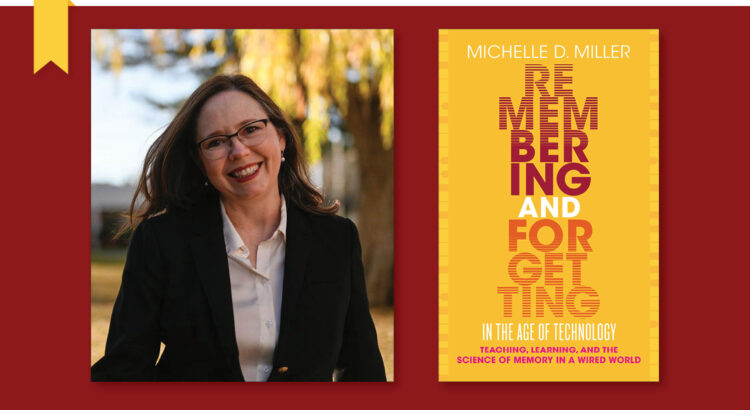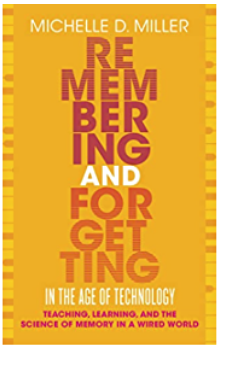In her latest book, Remembering and Forgetting in the Age of Technology, Dr. Michelle D. Miller examines the role of memory and attention in how we teach and learn, and the impacts our devices have in our classrooms. The book will be discussed as part of a joint EdTech & TCDC book club.
Read a short excerpt of the book below and join in the weekly conversation this fall:
Bloom’s system is unapologetically hierarchical, which is why it’s often illustrated with a pyramid. And in this hierarchy of teaching and learning objectives, memory is squarely on the bottom. Whenever I look at Bloom’s Taxonomy, I’m reminded of the U.S. government’s food pyramid, where the bottom layer – remembering – corresponds to something like white flour, and the rest – synthesizing, evaluating, creating – lives up in the land of filet mignon, raw organic kale, and wild-caught Alaskan salmon. The implication here is clear – excellent teachers don’t spend their time in the bargain basement of learning, but concentrate instead on the good stuff up at the top.
That’s the first objection to emphasizing memory in our teaching. Here’s the other, more modern one: Now that we have so much information available on the internet, and can access so much of it any time, any place, it’s simply not necessary to commit things to our own individual memories. In this way, expecting students to be able to recall facts is about as up-to-date as the skills of the roving bards of ancient times, the fellows whose stock in trade was the ability to reel off memorized epic sagas to illiterate audiences in the time before books (and Netflix).
David Pogue sums up this idea in a piece titled “Smartphones Mean You Will No Longer Have to Memorize Facts,” speculating that “maybe we’ll soon conclude that memorizing facts is no longer part of the modern student’s task.
The weekly online (Zoom) book club begins Tuesday, Sept. 20 (4:30-5:30pm) and runs until Oct. 25. Sign-up for the EdTech & TCDC Fall 2022 Book Club here.




